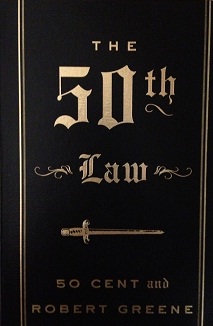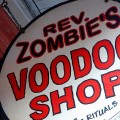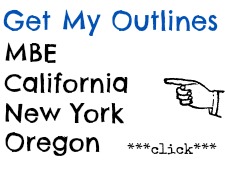Everyone has heard that networking is the best way to get a job, as a lawyer or anything. And, it is true. I’ve gotten most of my jobs through networking.
So, what do established lawyers have to say about networking?
I surveyed my law school alumni, and here are some of the responses that I got:
Expectations: The real issue is what you want back from a network? Don’t over ask is the key and don’t expect a simple introduction to be a real network just because you sent an email back saying nice to meet you. There needs to be mutual benefits to both parties on some level.
Booze: Don’t network drunk. Sounds obvious, but I know of a number of attorneys who got into extremely hot water after drinking too much at a networking event.
Respect: I’d suggest they take whatever opportunities are presented. If someone invites a student to an event where they can network, they should go. But, they should also be grateful for the invite. Ditching the person who invited them so the student can spend the event with others will not help get another invitation. Also, they should send the person who invited them a thank you note/card after the event. It’ll help leave a favorable impression.
Follow-Up: Follow-up, follow-up, follow-up. I send handwritten notes to people that I need to thank. If just an introduction a Linked In invitation is appropriate with a personalized invitation, none of that “Joe indicated you are friend” standard request. You never know if someone you met yesterday or years ago may lead to business, so stand out with the follow-up.
Belief: If I give you a business card and tell you to call me, I REALLY mean it. If you’re a law student and I offer you my time for a mentorship opportunity, I don’t make that decision lightly. So, please take advantage of the opportunity because I am trying to help you.
Informational Interviews & Preparation: After law school I read and outlined a couple books on how to draft a patent application since I wanted to be a patent prosecution attorney. When going on informational interviews my go-to question was “In what order do you like to draft your applications?” After the attorney answered I would mention reading the books and the order that was suggested, which matched with the order that every attorney I talked to used. Further, I asked about the America Invents Act, how it affected their practice, and discussed points of it with them. I could tell the attorneys were surprised and impressed that I knew about patent law beyond what a recent grad knew. I believe it helped me get the great job that I have.
Focus: One thing I would suggest in networking is for the student to express interest in a particular field instead of just saying they are looking for any job. At the end of law school, it can be really stressful to quickly find a job, especially with student loans looming. The tendency might be to show people you are desperately looking for work in any area, willing to do whatever it takes, hoping for someone to take pity, and offer a job. It’s much more impressive and effective for an individual to show a strong sense of direction and purpose toward a particular field. This topic will almost certainly come in during informational interviews or at networking gatherings. When there is a direction, then people who actually do pity the student but have no openings, will possibly be able to give some contacts or forward the name to the right people.
Groups: If you want to practice in a specialized area, seek out attorney groups that practice in that area. I wanted to practice education law so I tracked down the the president of the local education law committee in my state and he proved to be a great resource and even invited me to a couple of the groups events.
Awareness: Depending on the market area, the contacts at a networking event are crucial. I am in a small market and people notice how you act (including non-verbal cues), who you interact with (a number of people or just a few), what you are wearing (yes, presentation is important), and if someone is introducing a student around the crowd. Even as an alum at law school events, it is important to be aware of your surroundings. I’ve just hired a recent graduate through a network opportunity.
Relationships & Authenticity: Networking is about building relationships. Almost every job I’ve gotten, I’ve gotten because I knew someone who knew someone. After law school, I thought networking was simply about finding someone who would hire you. Now, I know it has to be a mutually beneficial and genuine relationship. You never know when you will meet someone with whom you can build a relationship that leads to career opportunities – it doesn’t always have to take place at a networking event. I got my current job through meeting a hiring manager on a bicycle ride. She liked my “go-getter” attitude on the bike and thought that I’d be a valuable asset to her organization. Be sure to present well wherever you are, but be authentic.
Don’t Burn Bridges: One mistake I’ve seen and experienced is burning bridges with people who could have helped you down the road. You will regret it. The legal market isn’t that big and your reputation is important. Another mistake is to use people just to get a job. Again, this is about building relationships. I helped a lawyer get a job when he had just been let go at another company. After he was hired at my company, he was nowhere to be found when I needed assistance and has not stayed in contact me at all. Needless to say, I would be reluctant to help this person in the future.
The Right Questions: Everyone who is approached as a networking contact knows the one making the approach is likely looking for employment opportunities–in fact, they may have been told that in advance by the person arranging the get together. Therefore, it is not necessary (and is frequently a turn-off) to say “I am looking for a job, do you know of anything.” If you are asking me, it is much more effective if you say “I am interested in a certain area, do you know someone I should talk to and would you be agreeable to arranging that contact?”
***
I hope these stories and suggestions were helpful for you.
P.S. -- Want a FREE copy of my Bar Exam Mind audiobook?
You can get a free copy of my audiobook when you sign up for a free trial at Audible. Get the details by clicking here.






